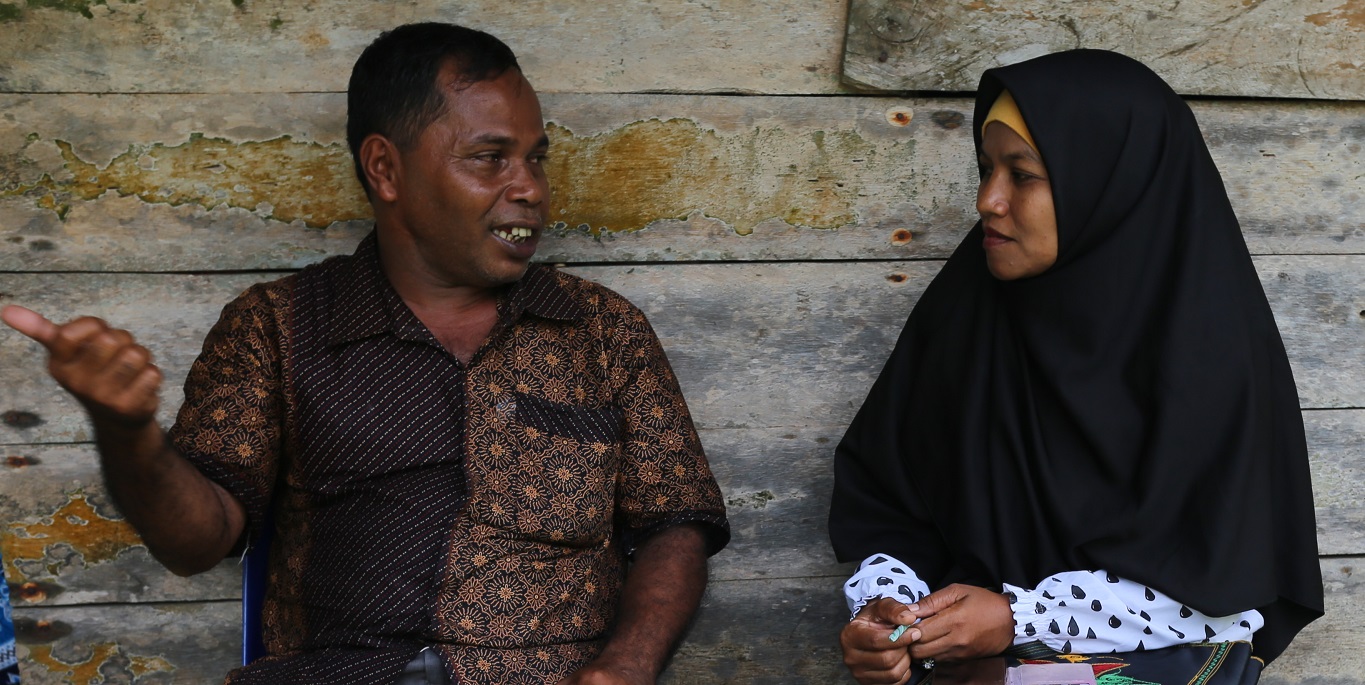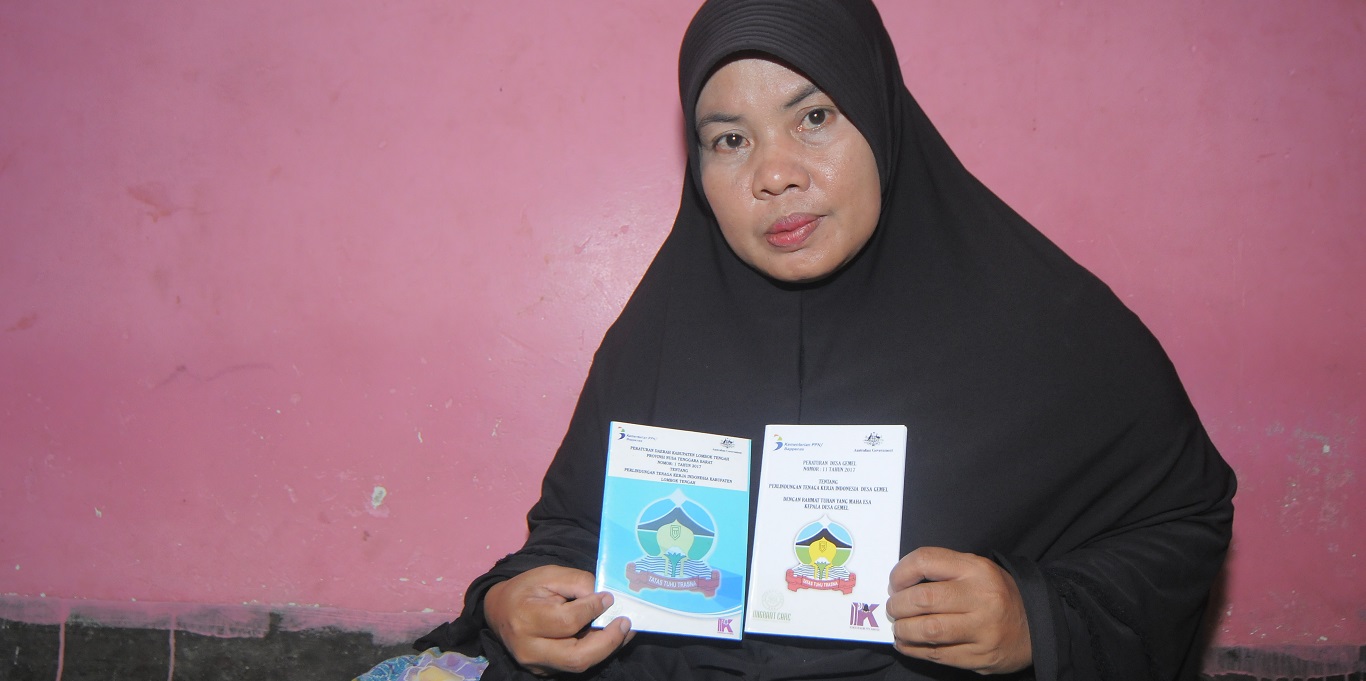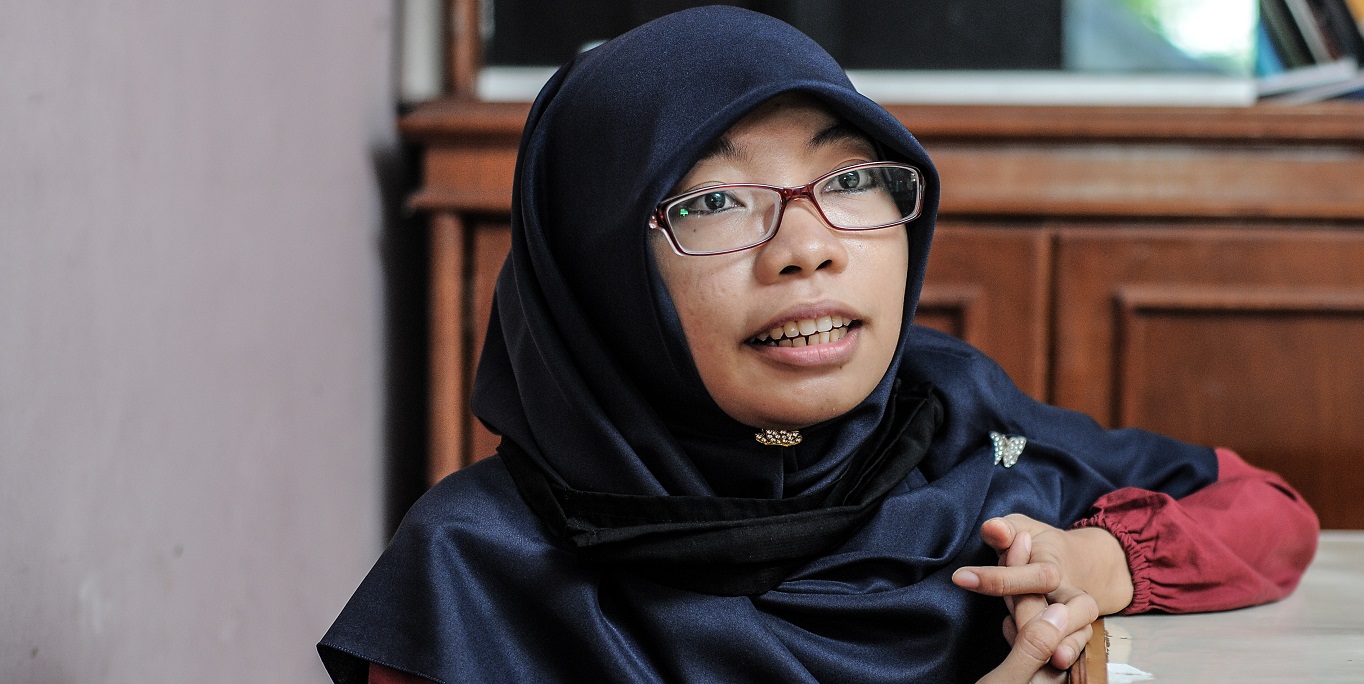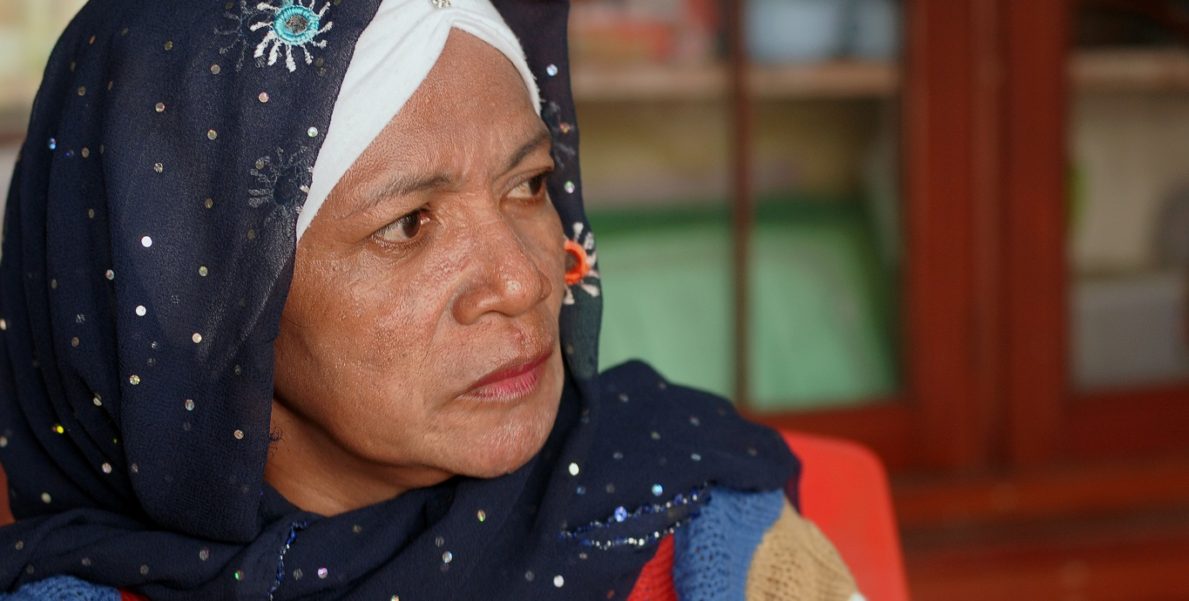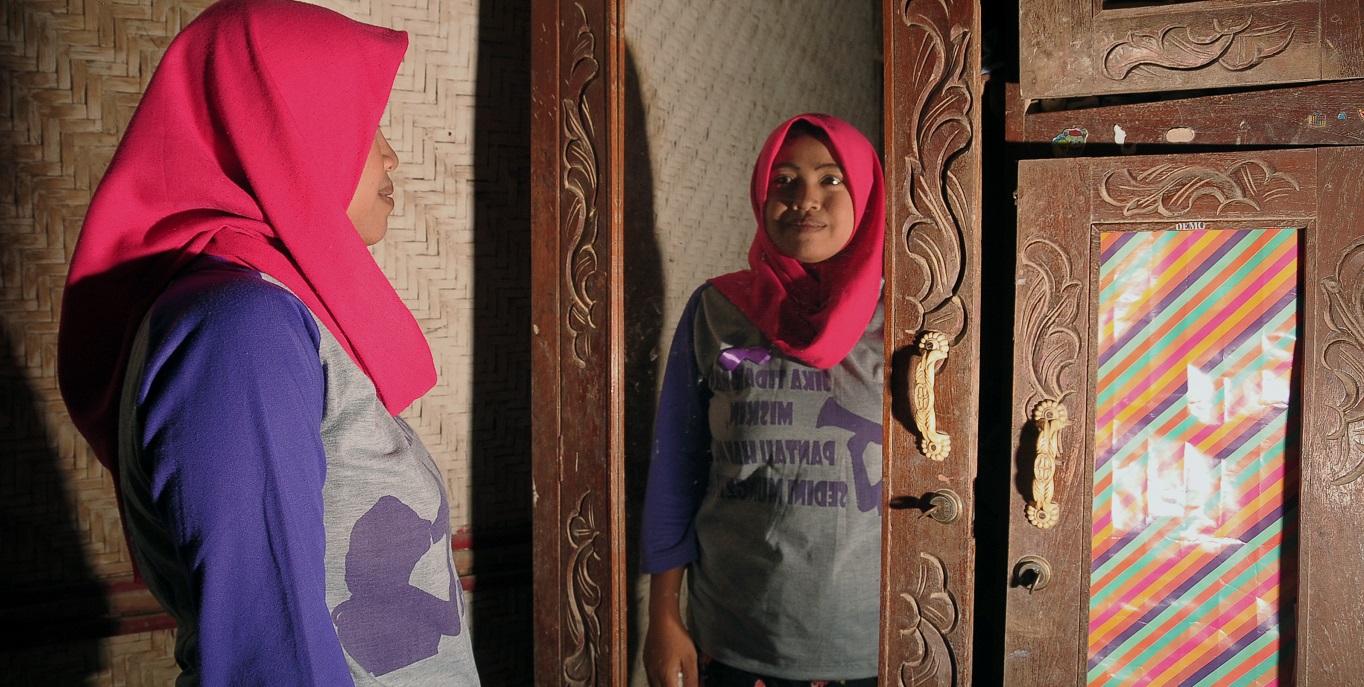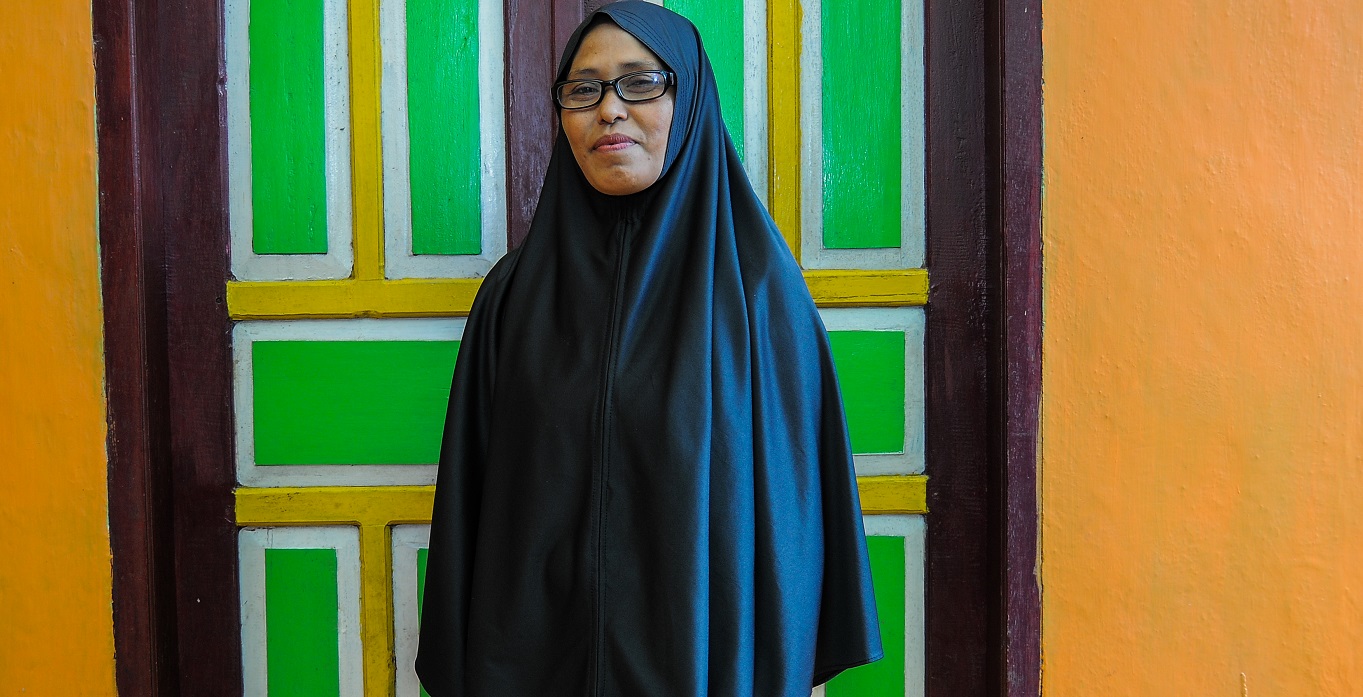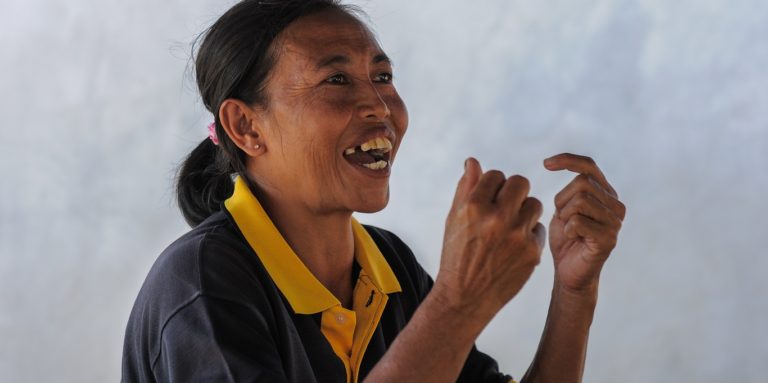Stories
Training to be Women Leaders with PEKKA in West Kalimantan
31 December 2017Penulis: admin
THAT morning, a group of women in Sungai Ambangah of Kubu Raya district, West Kalimantan, were busy drawing their own face; it didn’t matter whether they look alike or not. Take Nora for example, she drew a face of a woman wearing headscarf and red hot lipstick. “My lips were like that when I was young,” she said, bursting the group into laughter.
The women weren’t there for a drawing competition. They were participants of a 3-day women leadership training organised by PEKKA.
“We asked them to draw each side of their face, left and right. They then had to write down all their positive traits on the right side, and the negative ones on the left side. Afterwards, they were asked to present it in front of the group, describing what sort of a person they are, with the help of their drawings as visual aids”, explained Kholilah, one of PEKKA’s apprentices in West Kalimantan who was also facilitating the training that day.
The training was joined by 28 women selected from various parts of West Kalimantan, such as Bengkayang, Singkawang, Pinyuh, Rasau Jaya, Kakap, Teluk Pakedai, Kuala Mandor, and Sungai Raya.
“We usually begin by reminding them that they are all leaders. A simple example would be, when they play their parts as parents or head of a group, there must be some leadership involved in it – how small that is. We also discussed in detail about their responsibility for each role they play, as parents to their children, or head of a group to the members. All of them here understood who they are, their function, and their responsibilities as leaders,” added Kholilah.
The training is designed to make these women understood the importance of having priority levels in their routines and to keep them in check. There were quadrants posted all over the wall describing the following: ‘important things I always do’, ‘important things I don’t do’, ‘unimportant things I don’t do,’ and ‘unimportant things I always do.’ Out of these four quadrants, most of the women admitted that the latter is the one they do and enjoy most, such as gossiping and watching telenovelas.
“This exercise allowed them to identify there are still important things they need to attend to. It’s about rearranging priorities,” explained Kholilah. “For example one of them is a group leader, by now they should understand that it is important to check on their members regularly.”
PEKKA’s training is designed to be interactive. Participants were given assignments, involved in discussions and debates, as well as other simulation activities. Among those activities are exercising their negotiation and decision making skills.
They were given a scenario. It is set on the day of Eid al-Adha or Feast of the Sacrifice/ Kurban. There is only one boat operating that day. There are 3 more passengers who want to aboard the boat, however, it only has room for one more. The three passengers are the Imam, the Head of sub-district, and the social worker, all now has to negotiate with the boat owner on who gets to go first.
According to the Imam, it’s extremely important for him to go first because he is needed to deliver the Eid sermon and lead the prayer. The head of sub-district thinks he’s more important because he’s in charge for Kurban. The social worker also thinks it’s important for him to go first because he’s carrying the money to be distributed to the orphans. It is now up to the boat owner to decide.
The participants were divided in groups and had to do a role-play based on the three potential passengers. They had to explain who they are, their roles and responsibilities, and in the process, convinced the boat owner to let them aboard first.
“We finally agreed that the Imam is the one to go. It’s not mandatory for Kurban to be sacrificed on the 1st day. The Head of sub-district can ask the Imam to pass on the message to the rest of the committee that Kurban is pushed to the next day. As for the social worker, he too can ask the Imam to distribute the money on his behalf and hand over the name list of recipients for records and receipts. Besides, we only have one Imam on the island. So in this case, he’s the priority,” Kholilah argued.
This exercise is important as it relates to the different style of leadership. From the dictator type, the passive, or the assertive.
“The point is, these women can come up with a win-win solution. For them to be able to negotiate and create synergy,” Kholilah added. “Basically this is what we go through on a daily basis. Say you’re a leader of a group, a member of yours needs a loan but you have to turn it down. The member can’t take rejection too well and threatens to leave the group. Surely a situation like that requires you to exercise your negotiation skill.”
“Before today, Magdalena and I were the only ones who were groomed to be facilitators. Now, we can work in tandem with the apprentice to handle and deliver the training because they too have been groomed for it. It helps to build their confidence even more. Some of them even told us, they feel more confident speaking directly to their audience rather than having to do the dry run with us,” Kholilah laughed.



